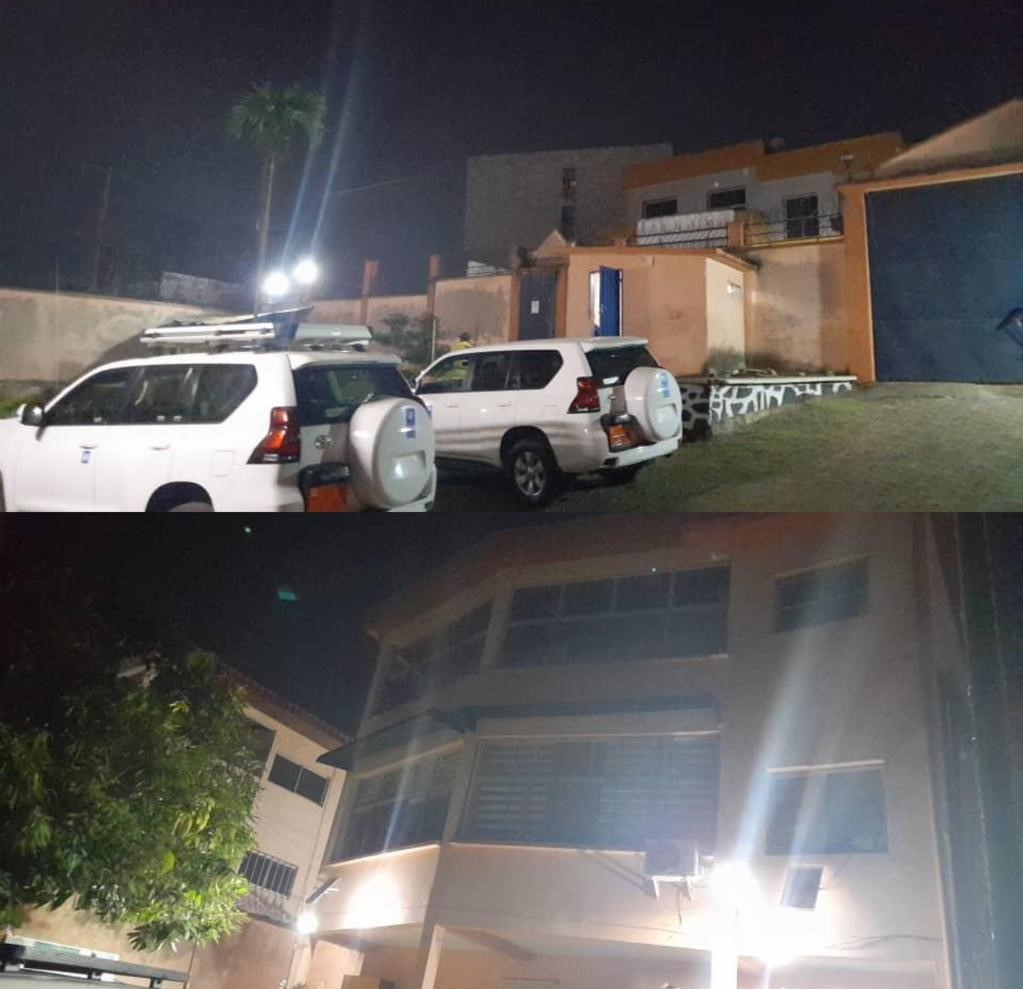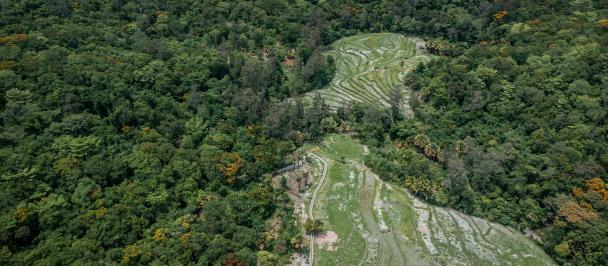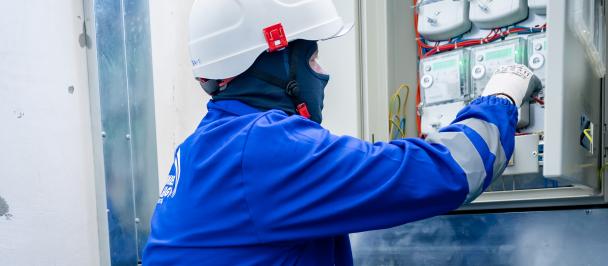The use of solar energy is significantly reducing the organisation's carbon footprint
UNDP Cameroon, at the heart of green technology promotion
January 26, 2023
"We had frequent and violent power cuts that sometimes destroyed our equipment and slowed down our work. At times, the electricity failed in the middle of an important online meeting. The situation was very discouraging." Anna Ojong, a staff member of the UNDP Cameroon AccLab project, recounts some of the challenges they encountered due to the frequent failure of thermal energy at the UNDP Cameroon Project Office building.
A cross section of the UNDP Cameroon Project Office building with external twilight systems
The UNDP Cameroon Project Office houses over eleven project teams as well as a sports room for UN staff from various offices housed in the UNDP Cameroon main building. The project office team, like most development workers, depends almost entirely on electricity for their work. The office faced numerous challenges from its thermal energy electricity supply, including regular power cuts, short circuits, and multiple electrical overloads (voltage and current), which damaged a considerable amount of working equipment, including computers. The office generator could not help much. It was characterized by numerous breakdowns and high fuel consumption. “The situation affected the stability of the office’s internet connection. Sometimes, the power cuts got so bad that we were forced to stop work before closing time. It was a sad and gloomy situation," says Amadou Toukour, a UNDP AAF Project staff.
UNDP-CMR-Photovoltaic Solar Panels installed on the roof of the project building-2023
For the management of UNDP Cameroon, it was not only a concern for the challenges that the situation imposed on staff’s work but also a serious concern for the increasing carbon footprint that the situation generated. The management feared it could become a great danger to the staff and their working environment while making significant contributions to global warming. To ensure a sustainable solution, the organization's management, in December 2022, as part of its #UNDPCameroonGoesGreen objectives, installed a photovoltaic solar system in the building and replaced all its incandescent office bulbs with economical LED bulbs and twilight switches. The system is presently the building’s main source of electrical energy, with over 70% coverage. The remaining 30% is covered by thermal energy.
"Our objective is to ensure a comfortable working environment for our staff while committing to the reduction of our offices’ carbon footprint, by using a renewable, green-friendly, and cost-effective source of energy that is helping us to significantly cut our expenditure on thermal energy bills, and generator fuel, a critical source of pollution. This green source of energy is providing our team with a healthy working environment and stable electricity, especially during this period of the dry season, which is the peak of thermal energy outages." Alassane Ba, UNDP Cameroon’s Acting Resident Representative, explains with a feeling of satisfaction.

The project office, lighted by the automatic twilight switches
The office’s solar power system is characterized by forty-six monocrystalline solar panels, installed on the roof of the building, four Felicity rechargeable lithium deep-cycle batteries, and four Felicity hybrid inverters in the control room, among other equipment. The system is successfully powering critical internal and external energy loads, including the lighting system, the sports room equipment, the technical room equipment, and ICT equipment: computers and accessories, priority printers, and others. This energy source is enabling the organization to offset tons of CO2 emissions while producing cleaner and more efficient energy.
"Today, we work in comfort; the electricity provided by the solar power system is sure and stable." Anna Ojong affirms confidently. "This is a smart and fast solution to the situation, and for that, I say thank you to our management." Amadou Toukour complements with contentment.
"The solar system has significantly stabilized the equipment managing our computer network and Internet connection. This is significantly reducing costly system failure repairs and providing stable internet connections." Leonard Touka, UNDP Cameroon’s ICT Associate, explains.
Stable solar energy sparks happiness in project office staff, Sandrine and Amadou
The implementation of this solar system in the project office by the management of UNDP Cameroon is stimulated by the success of the photovoltaic solar system installed in the UNDP Cameroon office building within the framework of the UNDP Cameroon Goes Green project funded by UNDP’s Global Greening Moonshot Fund programme."We are happy that the success of this project, which is enabling the organisation to contribute to walking the Global Climate Change Mitigation talk, has inspired the organization’s management to extend the model to the project office." Larissa Tuayo, the project’s staff, affirms.
UNDP Cameroon, through its commitment as a strategic partner of choice for development, is motivating institutions and communities to leverage the model and multiply it across the country. “Environmental sustainability, climate risk, and disaster management constitute a key pillar in UNDP Cameroon’s new country programme. In our projects’ construction activities, we prioritize renewable energy, particularly solar energy, in the construction package, mostly in zones with inadequate or no thermal energy supply. Our ambition is to promote the use of new and renewable energy across the country and to scale up the country’s contribution to reducing greenhouse gas emissions, following its engagement with the climate change convention and its national development strategy." The RRa.i., Alassane Ba, concludes.
Solar energy system

 Locations
Locations



